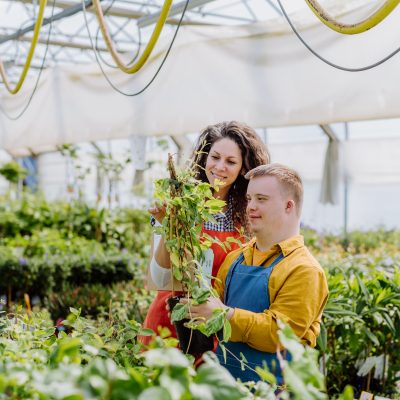The Social and Economic Sustainability of WA’s Rural Volunteer Workforce

BCEC launched a new report in the BCEC Feature Series, The Social and Economic Sustainability of WA’s Rural Volunteer Workforce on Tuesday 26 February.
The report was launched at a special Volunteer Manager Networking event hosted by Volunteering WA at City West Lotteries House in Perth.
Report author Professor Kirsten Holmes, from the School of Marketing at Curtin University, said volunteers delivered crucial roles in under-resourced communities, but an ageing population and trend towards city-living among younger people was a growing challenge for the sector.
Volunteering is critical to the survival and success of rural communities in Western Australia. The past two decades have seen an increase in the community services delivered by volunteers and demand on the volunteer workforce has intensified.
Yet, according to data collected by the Australian Bureau of Statistics over the same period there has been a decline in volunteer participation across Australia, resulting in a shortage of volunteer labour.
The research identifies how rural communities in WA are addressing the challenges of recruiting and retaining volunteers at a time of unprecedented demographic change and increasing pressure on the rural volunteer workforce.
There is a critical role of volunteering in creating a sense of community wellbeing and delivering essential services in rural areas.
The findings confirmed the importance of rural volunteering in WA, with a very high level of participation across the state’s rural communities. Particular problems include structural population ageing, a reliance on key individuals to take on multiple volunteering roles; pressure from increased accountability and regulation; and rural organisations being governed from metropolitan headquarters with little apparent consideration for differences in rural service provision.
Questions from the audience centred on the potential policy implications of the report’s findings, and how employers might better support the volunteering activities of their employees. Beyond providing specific community service leave, potential measures included investing in skills development and allowing employees to volunteer their time during work hours.
The importance of support was emphasised by Professor Holmes, especially the need for strategies to ensure volunteer wellbeing and mental health. This is crucial to avoid the risk of burnout that can result from situations that are common in rural WA, such as long-term volunteering, feeling compelled to continue volunteering because no replacement is available, or engaging in stressful work such as that performed by Emergency Services volunteers.
Discussing how to respond to the challenges caused by dwindling recruitment pools, the panel suggested ways in which volunteering organisations might adapt their structures to utilise new technologies. ‘Do we actually need the strategic committee roles in volunteering organisations to come from the local area? Is outsourcing to non-residents a way we can spread the load of volunteering roles?’ asked Kate White, Director of Adept Volunteering.
BCEC Director, Professor Alan Duncan said the Centre aims to deliver research with impact, and that supports effective decision making by policy makers, across industry and in the wider community.
“Our hope is that the challenges identified in this report will spark a conversation that leads to meaningful change and increased sustainability within the sector,” Professor Duncan said.




